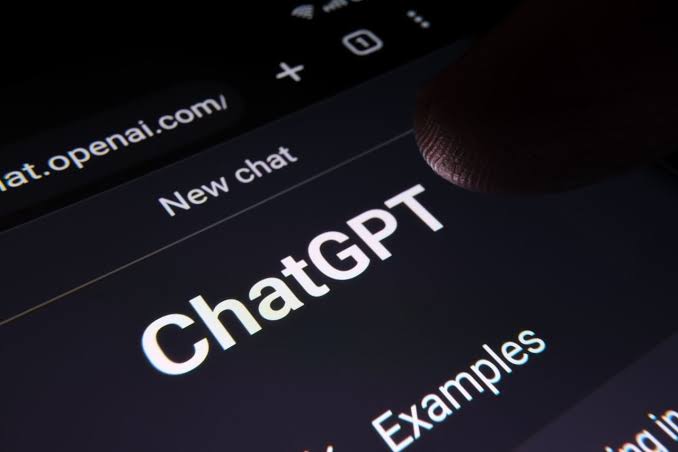In a shocking revelation, cybersecurity researchers have discovered that more than 100,000 ChatGPT user accounts have fallen into the hands of malicious hackers, who subsequently sold the stolen credentials on the dark web. The attack, facilitated by malware-infected devices, was executed without breaching OpenAI’s infrastructure directly. This article delves into the details of the breach, highlights the affected regions, discusses the attack vectors employed by the hackers, and explores the potential risks posed to ChatGPT users.
1. The Breach and Impacted Regions
According to a report by cybersecurity research firm Group-IB, over the course of one year, a staggering 101,000 ChatGPT accounts were compromised in a large-scale data breach. The primary targets of this breach were users located in Asia, with more than 41,000 accounts sold on the dark web. In comparison, approximately 3,000 accounts belonging to users in the United States were affected.
2. Attack Vector and Malware Utilization
Group-IB’s investigation identified the attack vector as login-stealing malware, which infiltrated users’ devices and harvested sensitive information, including saved passwords from web browsers. The malware employed by the hackers, namely Racoon, Vidar, and Redline, utilized similar methods to extract user data. By decrypting the stolen information, the attackers were able to gain unauthorized access to ChatGPT user accounts.
3. Limitations of ChatGPT’s Security Measures
While the responsibility for this data breach falls on the hackers and not OpenAI itself, concerns arise regarding ChatGPT’s security measures. Users may unwittingly input sensitive information into the tool, potentially exposing it to theft. While OpenAI has implemented standard security measures, this incident underscores the need for stronger user awareness and enhanced security protocols to safeguard user data.
4. Mitigating Future Risks
In light of this data breach, both OpenAI and ChatGPT users must take proactive steps to mitigate future risks. OpenAI should prioritize reinforcing the security infrastructure and implementing additional layers of protection to prevent similar incidents. This includes monitoring for unusual activity, enhancing encryption protocols, and bolstering authentication mechanisms.
ChatGPT users must remain vigilant and adopt robust cybersecurity practices. It is crucial to regularly update software and operating systems, employ reliable antivirus and anti-malware solutions, and exercise caution while sharing sensitive information online. Implementing two-factor authentication can significantly bolster account security, making it harder for unauthorized individuals to gain access.
The compromise of over 100,000 ChatGPT user accounts and their subsequent sale on the dark web reveals the pervasive threat of data breaches and the vulnerability of user information. OpenAI must work diligently to enhance its security infrastructure, while users should adopt best practices to protect their personal data. By remaining vigilant and implementing robust cybersecurity measures, individuals can minimize the risks associated with using online platforms and services.
5. The Significance of the Data Breach
The data breach involving over 100,000 ChatGPT accounts is significant not only due to the large number of compromised accounts but also because of the potential risks associated with the stolen credentials. ChatGPT is a popular language model that interacts with users in various contexts, including sensitive ones such as customer support or personal conversations. If accessed by malicious actors, the compromised accounts could be exploited to deceive individuals, gain unauthorized access to private information, or engage in fraudulent activities. This breach highlights the importance of securing user accounts and reinforces the need for robust cybersecurity measures in the era of AI-powered communication tools.
6. User Implications and Privacy Concerns
For the individuals whose ChatGPT accounts have been compromised, the breach raises significant privacy concerns. Usernames, passwords, and potentially sensitive conversations may have fallen into the wrong hands, jeopardizing personal and professional information. This incident underscores the importance of regularly updating passwords, refraining from reusing passwords across different platforms, and practicing good password hygiene.
Moreover, users who engage in sensitive conversations or share confidential information via ChatGPT may experience a breach of trust. The breach highlights the need for clear communication from OpenAI regarding the incident, its impact on user data, and the measures being taken to prevent future breaches. OpenAI should be transparent and provide necessary guidance to affected users on steps they can take to protect their privacy and mitigate any potential harm resulting from the breach.
7. Legal and Regulatory Considerations
The data breach of ChatGPT accounts may also have legal and regulatory implications. Depending on the jurisdiction, organizations like OpenAI may be subject to data protection and privacy laws that require them to secure user data adequately. In the aftermath of this breach, OpenAI may face scrutiny regarding its security practices and compliance with relevant regulations.
Affected users may have legal recourse to seek damages or hold OpenAI accountable for any negligence or inadequate security measures that led to the breach. It remains to be seen how OpenAI will address these concerns and whether any legal actions will be taken by affected users.
Regulators and policymakers may also scrutinize the incident to assess the effectiveness of existing data protection laws and regulations. This breach serves as a reminder of the ongoing challenges in securing user data and the importance of continuous improvements in cybersecurity practices across AI-driven platforms.
8. Learning from the Incident
The data breach of ChatGPT accounts serves as a valuable lesson for both OpenAI and the wider cybersecurity community. OpenAI must thoroughly investigate the breach, identify the vulnerabilities that were exploited, and take steps to fortify its security infrastructure. The incident underscores the need for ongoing investment in cybersecurity research, threat intelligence, and proactive defense mechanisms to stay ahead of evolving cyber threats.
For users, this breach highlights the significance of maintaining strong security hygiene, being cautious while sharing sensitive information, and regularly monitoring online accounts for any suspicious activity. Increased awareness and education around cybersecurity best practices can empower individuals to protect themselves and minimize the impact of future breaches.
By learning from this incident and implementing robust security measures, both OpenAI and users can work together to create a safer and more secure environment for AI-driven interactions.












